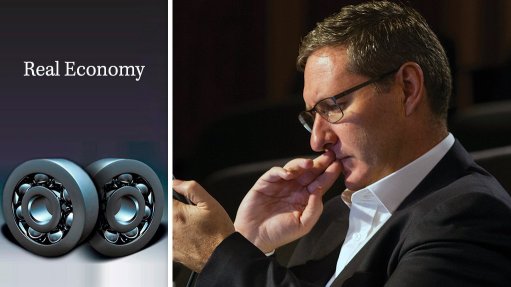
South Africans should be in no doubt that the content and tone of the conversation about electricity have shifted decisively, notwithstanding the unexpected decision by the Department of Energy last week to refrain from signing long-awaited agreements for 27 renewable-energy projects.
Prior to the election of Cyril Ramaphosa as president of the African National Congress, nuclear dominated the debate and the official view was that Eskom should be salvaged, but kept fully intact. After the Nasrec conference and Ramaphosa’s ascendency as the country’s President, the conversation has became far more open minded, albeit still somewhat garbled.
To be blunt, nuclear is no longer a real topic, even though officials will continue to repeat that it remains part of the energy mix. Instead, the discussion has shifted to the future role that coal and renewable energy should play, as well as to the form the electricity supply industry should take in order to facilitate a transition from a centralised power system to one that is more decentralised.
Interestingly, local government, rather than the Department of Energy or Eskom, is driving the conversation. This makes sense, as the country’s municipal distributors are at the bleeding edge of changes already taking hold of the sector. These utilities are exposed to the so-called ‘utility death spiral’, whereby revenue falls in sync with demand, as the cost of defection becomes increasingly attractive in the face of surging tariffs.
It comes as little surprise, therefore, to learn that the South African Local Government Association (Salga) has called on Ramaphosa to appoint an ‘Energy Reform Commission’ to review the current structure, including Eskom’s role.
Salga president Parks Tau articulated the need for such reform during the recent Salga Energy Summit. He urged policymakers to tackle the structural issues from the perspective of what is in the best interests of the country’s development, rather than, primarily, through the prism of Eskom’s financial stability. “When we start the conversation with Eskom and then the rest, the conversation is wrong.”
Even Eskom representatives at the gathering expressed sympathy for a reform agenda. In response to a sustained onslaught against the utility, Eskom’s Mongezi Ntsokolo offered insight into some of the radical remedies being considered.
“Governance is being addressed, as are liquidity and efficiency . . . The next step is to look at a new business model,” Ntsokolo stated. “We will benchmark with international utilities and look at what can work in South Africa. Issues of a system operator, the issue of being vertically integrated, or whether we need to separate some of the licensees and make them standalones, are all issues we are seized with.”
Add into this mix the National Planning Commission’s new discussion document on the energy sector, which reinforces the National Development Plan’s “explicit” requirement for the system opera- tions of Eskom to be separated into an independent institution, and one gets an even better picture of the momentum gathering around a reform agenda.
The legal challenge against the introduction of legitimately procured renewables projects may seem to pose a threat to such reforms. However, it is unlikely to prove to be an insurmount- able hurdle.